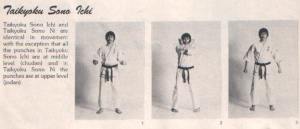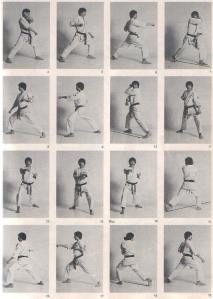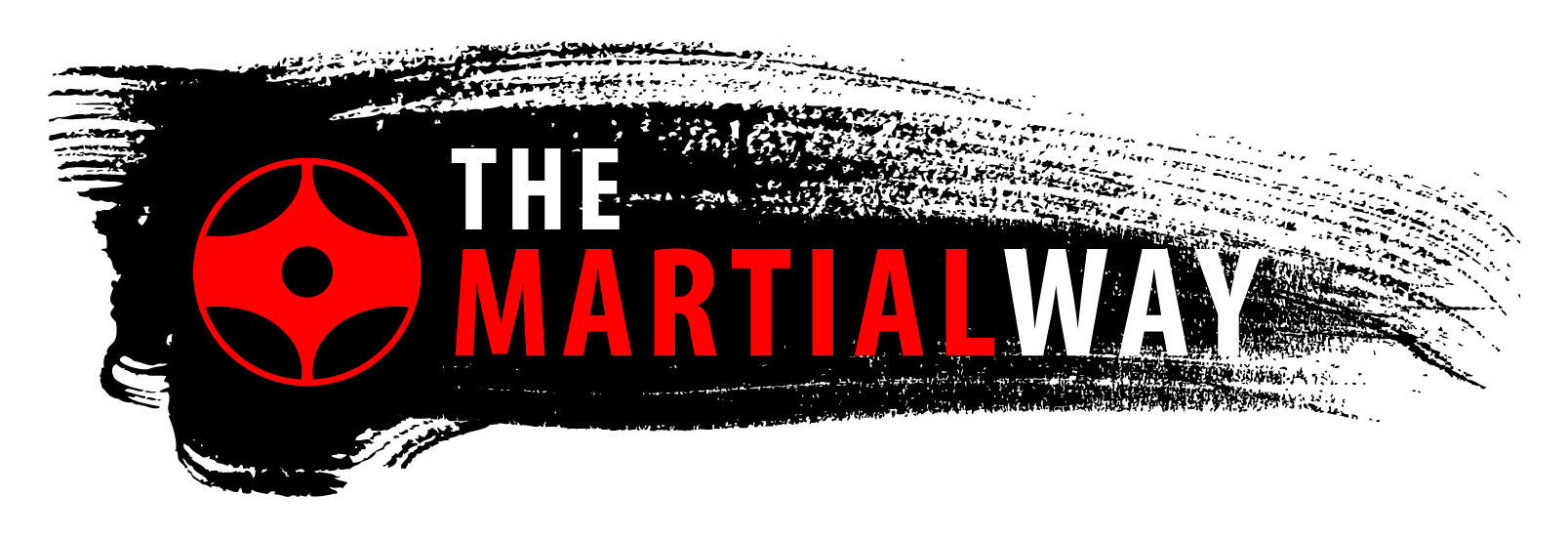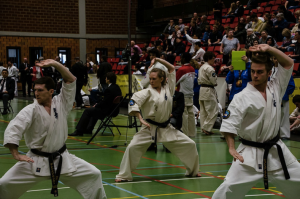Moving from jodan uke in Kiba Dachi to gyaku tsuki in zenkutsu dachi, twisting the waist, generating enough torque to make your belt whip around your waist, back and forth as the punch is delivered, with Kime.
Over and over, 100 times, we practice the movement. Sensei Fogarasi watches our every move, correcting us. Making sure that we are rotating correctly on our feet, that our hands are in the correct position. Eventually, with KIAI ! reeling out loudly, the movements become more fluid and natural. We move through stances, strikes and blocks, with Sensei Fogarasi our guide.
Next up, Taikyoku Sono Ichi ura, or with spins. The ura versions of the Kata were developed by Mas Oyama to improve balance and agility. This is helping with our agility for sure and though it can be difficult, we begin to move as one smoothly.
Next up, Kata in reverse? Was I hearing correctly? I had never done anything like that. After going through the kata regularly we take the task of going backwards. Much harder than you might think. Your brain gets tied up in the correct foot patterns and turning patterns. You don’t know which way is right. My mind is challenged and I can feel it firing on all cylinders.
 We do the kata over and over and after a while I begin to get the hand of it, but never completely. Sensei explains how good this is for us, as it not only helps us being unorthodox, and with striking and blocking unconventually, it is literally rewiring the brain. As Sensei Fogarasi put it, we are getting a software update! The mind is challenged incredibly and forced to exam and dissect patterns, direction and movement quickly.
We do the kata over and over and after a while I begin to get the hand of it, but never completely. Sensei explains how good this is for us, as it not only helps us being unorthodox, and with striking and blocking unconventually, it is literally rewiring the brain. As Sensei Fogarasi put it, we are getting a software update! The mind is challenged incredibly and forced to exam and dissect patterns, direction and movement quickly.
This is the type of training that will not only sharpen your technique, but your mind as well. It is like learning a new language or music, and the mind is being exercised as much, if not more, than your physical body.
.ti rof nam retteb a ma I yad yrevE .ojod ym dna iesneS ym ,nihsukoyK dnuof evah I dalg ma I
! SUO

